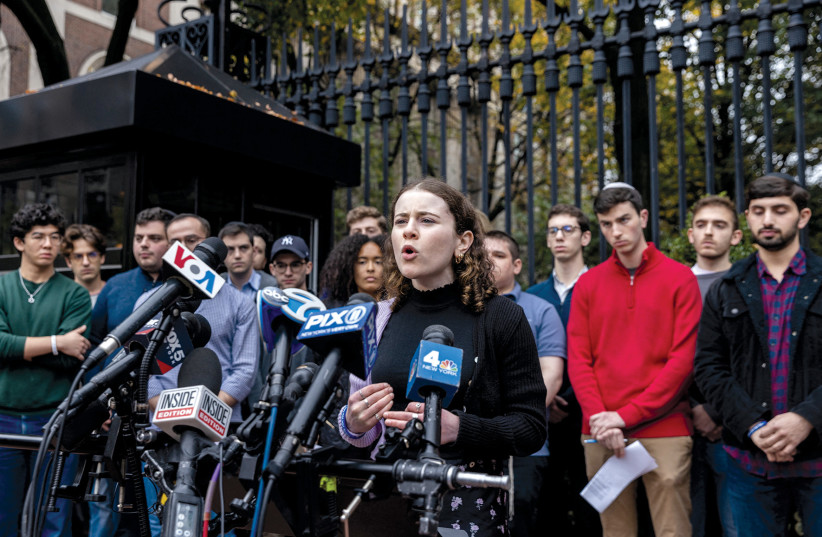Columbia University in New York announced a series of initiatives last week to, in the university's words, "foster a community where debates and disagreements are rooted in academic rigor and civil discourse." The initiative comes after protests, press conferences, and police presence on campus in the months since Hamas's October 7 massacre and the ongoing war in Gaza.
The Office of the President will host "Listening Forums" throughout the 2023-2024 academic year, Columbia said, while a "Dialogue Across Difference" initiative will hold "panels, conversations, and workshops [to] tackle contentious, challenging societal issues from multiple viewpoints, assess obstacles to civic dialogue, and explore potential solutions."
These events will be concentrated in a "Week of Dialogue" in February. The initiative also involves grants for faculty and students to support new dialogue-based initiatives on campus.
The university says the Dialogue Across Difference initiative will have a professional development component, referring to "a range of new workshops and resources for faculty as they navigate challenging classroom dynamics."
The statement says that the university has "retained expert advisors" to help staff "in navigating differences and implementing de-escalation strategies, and specifically on addressing the current conflict." The statement did not say who these experts were.
In a video announcement, the university's president, Minouche Shafik, described this period as "truly challenging for many at Columbia," adding that "because we are a global, diverse, and engaged university, everything that happens in the world spills over onto our campus."
In a statement accompanying the video, Shafik and Columbia's interim provost Dennis Mitchell say that they "feel very keenly the fear and feeling of devastation, particularly among the Arab, Israeli, Jewish, Muslim, and Palestinian members of our community."

Columbia states current free speech policy while announcing 'review'
The initiatives arrive amid fierce criticism of university presidents following the testimony of Liz Magill of the University of Pennsylvania, Claudine Gay of Harvard, and Sally Kornbluth of MIT at a House of Representatives hearing on antisemitism. Magill was forced to resign following the hearing, and Gay is under rising pressure to resign as well, after their testimony not only prompted backlash over antisemitism but also drew attention to potential violations of academic ethics in Gay's published work.
In what may have been a response to this controversy, Columbia announced an "enhanced reporting initiative" to "ensure a rapid response process for allegations of hate speech, harassment, and other forms of disruptive behavior." As for what would constitute hate speech or harassment, the university said it would "review" its event policies and rules of conduct.
"The University recognizes two kinds of limitations on the right to freedom of expression: reasonable time, place, and manner restrictions and restrictions on expression that constitutes a genuine threat of harassment, that unjustifiably invaded an individual's privacy, or that falsely defames a specific individual," it clarified.
Will it assuage concerns, or solve the problem?
The concerns for Columbia are not merely hypothetical: the school has seen repeated controversy since the war broke out between Israel and Hamas: A tenured professor praised the October 7 attack; Jewish students held a press conference calling on the school to do more to protect them from harassment and threats of violence; pro-Palestinian student protestors shouted "long live the intifada," while a student group at the Columbia School of Social Work planned a "teach-in" on what it called the "October 7 counteroffensive."
Columbia also banned several pro-Palestinian student groups that were found to be in violation of its policies.
